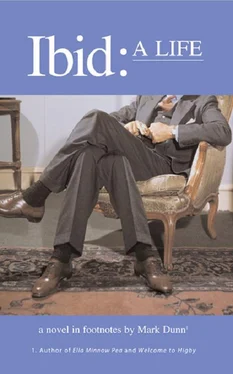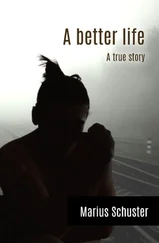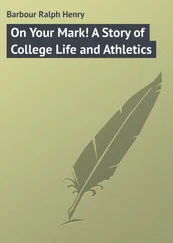11. We drink more coffee. If necessary, we chew and swallow the grounds. We reek of the stench of coffee, but we rejoice in it, for it represents the essence and incense of our rejuvenation.
12. We share these steps with other alcoholics in need. We come together in groups and say our name and drink coffee and smoke cigarettes and eat lard-shortened doughnuts and sugar fry cakes and acknowledge that we are men and women on the road to sobriety and health through fellowship and mutual support. We celebrate our rebirth as alcohol-freed Americans, ready now to make sober contribution to the life of this great nation, and so we go clear-headed with raised chin and elevated spirits, and with renewed determination to get ourselves off the breadlines and into a job. And Clark Gable willing, we shall succeed.
32. It was all over but the shouting.Even on the best of days Dandy-D’s vice president for international marketing William B. Worthington would shout his opinions and instructions in a voice so deafening that Jonathan was forced to put an Ear, Nose, and Throat specialist on staff to administer to the injured. Eventually Worthington left to go to work for a turbine manufacturer. In a raised voice, the departing company man confessed that he could not help himself; he came from a long line of shouters, mostly ministers. There is a rich history of bellowing from the pulpit, the phenomenon, curiously, the subject of perhaps the longest book title in American publishing history: Shouting: Genuine and Spurious in All Ages of the Church, from the Birth of Creation, When the Sons of God Shouted for Joy, until the Shout of the Archangel: with Numerous Extracts from the Old and New Testament, and from the Works of Wesley, Evans, Edwards, Abbott, Cartwright, and Finley, Giving a History of the Outward Demonstrations of the Spirit, Such as Laughing, Screaming, Shouting, Leaping, Jerking, and Falling under the Power &C., by G. W. Henry (Oneida, New York, 1859).
33. Clara could bear no more children.As disappointed as Jonathan must have been to learn that the surgery would prevent Clara from giving him the biological child he had always wanted, his feelings go unregistered both in his diary and in correspondence from this period. Furman wonders if this might not have been a silent acknowledgement of the fact that the odds were already working against him; even without the fibroid tumors, Clara might still have had difficulty conceiving, given that Jonathan was in possession of an undescended testicle — a condition that generally reduces sperm count and the odds of “hitting the target.” Or as Odger delicately put it, “See, ol’ Jonny was born with three legs but only one ball. Ol’ Tweedledee was tucked away up in his stomach somewheres. Back in those days, why, the doctors they didn’t generally go about the business of dropping those suckers into the oat bag. And even if this had been standard procedure, they’d probably have been too distracted by that extra danged leg to notice that the boy was one nut short of a Mars bar.”
34. “Clara and I have decided to adopt.”Jonathan Blashette to Andrew Bloor, 28 March1935. AnB.
35. “Clara says he’s the most beautiful baby she’s ever seen. Even famed engineer and bridge designer Bascom Caruthers left his blueprints to come down from the attic to give him a look.”Jonathan Blashette to Andrew Bloor, 17 May1935, AnB.
36. “We are going to call him Addicus Andrew, after my father and a very dear friend.”Ibid. Bloor’s response, coming only a few days after his retirement from Oberlin College, was touching. The complete letter follows. JBP.
May 21, 1935
My dear Jonathan,
You have moved me to tears. I am watermarking my stationery with this shameful welling of my lachrymal glands! I was never blessed with a marital union and so I have never known the joy of fatherhood. You are finally, in your forty-eighth year, partaking of that experience and I wish you all possible happiness.
I have just remarked that I have never known the joy of fatherhood. That is not entirely true. For I have come to think of you as my own son. You have opened your life to me as has no one else and I feel each day the ligature of that special bond we have forged. Yes, like that of father and son. I hope that your birth father will forgive me for trespassing here, but it is true.
I wish all good things for you and Clara, and for little Addicus Andrew Blashette.
Next month I will be moving to Omaha to take up residence with my sister Evetta and her husband Sven. I will not know what to do with myself. Teaching was my life. I will wear the mantle of “emeritus” proudly, but will so miss the classroom and all my students.
Evetta is a blessed soul. Her husband Sven, however, often tries my patience to the extreme. On my last visit, he brought his catch of the day boastingly into my bedroom and dripped fish water upon my bed. He is illiterate and frequently requests that I read product labels to him. These readings seem to entertain him in a way that I cannot comprehend and I am often required to recite a particular label more than once and employ different voices, especially highly pitched ones that remind him of women from the Orient. I refuse to do this in the presence of my sister. It is an act of humiliation I reserve for Sven alone. Yet sometimes when the recitations are over, I feel strangely invigorated and eager for our next session. I do not understand the reason for this.
Congratulations again on the adoption. I look forward to seeing the child on my next visit to “Chez Blashette.”
Give him a little hug for me.
Your friend always,
Andrew Bloor
37. “Adopted Son of Deodorant Executive Kidnapped. Family had the child for only six days.” New York Dispatch , 23 May1935.
38. “God, oh God, what did I do to deserve this?”Jonathan’s “Letter to God,” JBP.
12 THE SHIFTING SPOTLIGHT
1. “ I just heard the news.”Nydia Blashette to Jonathan Blashette, 24 May1935, JBP. Jonathan’s Aunt Nydia, sensitive to the emotional toll the kidnapping was taking on Jonathan and Clara, continued to write to the couple, often including verses of inspirational poetry she had penned during stolen moments from her job as hash-slinger at the Fort Ituska Logging Camp Mess Hall. Far from being the balm to Jonathan and Clara that Nydia hoped they would be, the verses served only to sharpen the pain of loss that the couple felt. It is not difficult to see why Jonathan and his wife found the poetry so objectionable, as illustrated by the following excerpt.
You cry for the child at night.
I know.
I hear the whimpers like the warbly whimpers of the whimperwill.
Like the moping murmur of the moany bird.
Custodian of the empty nest—
A nest robbed of chirpy chick
By the clawed swipe of the thievy rascally rat.
A silent nest where no young one sings—
Where stillness settles heavy dulled and dampened by
the leaden ache of a mother’s loss.
A pining and keening among the oaken branches of a family tree
Unnecessarily
Pruned.
A pining keening, wail-warble
For the happy child who once dwelled within this
Nest of love and twining tangly tendertwig.
Where, oh where is that child-chick so fair,
So young, so soft
So loved.
You cry for the child at night.
Tears that do not dry with the break of day.
In company with the flitter-flutter of the
Mourning Dove,
Newly arrived upon your sill.
Coo.
Coo.
Addy Andy, where are you?
2. “Did Hauptmann have a brother?”Nydia Blashette to Jonathan Blashette, JBP. The letter, which I include in its entirety below, prompted Jonathan to direct his local postmaster to return all correspondence from Nydia “to sender,” and to temporarily sever ties with a woman who obviously meant well but had a strange way of showing it. Addicus had been estranged from his younger sister for years, and had counseled Jonathan to avoid her as well. It seems that Jonathan finally took his father’s advice.
Читать дальше












